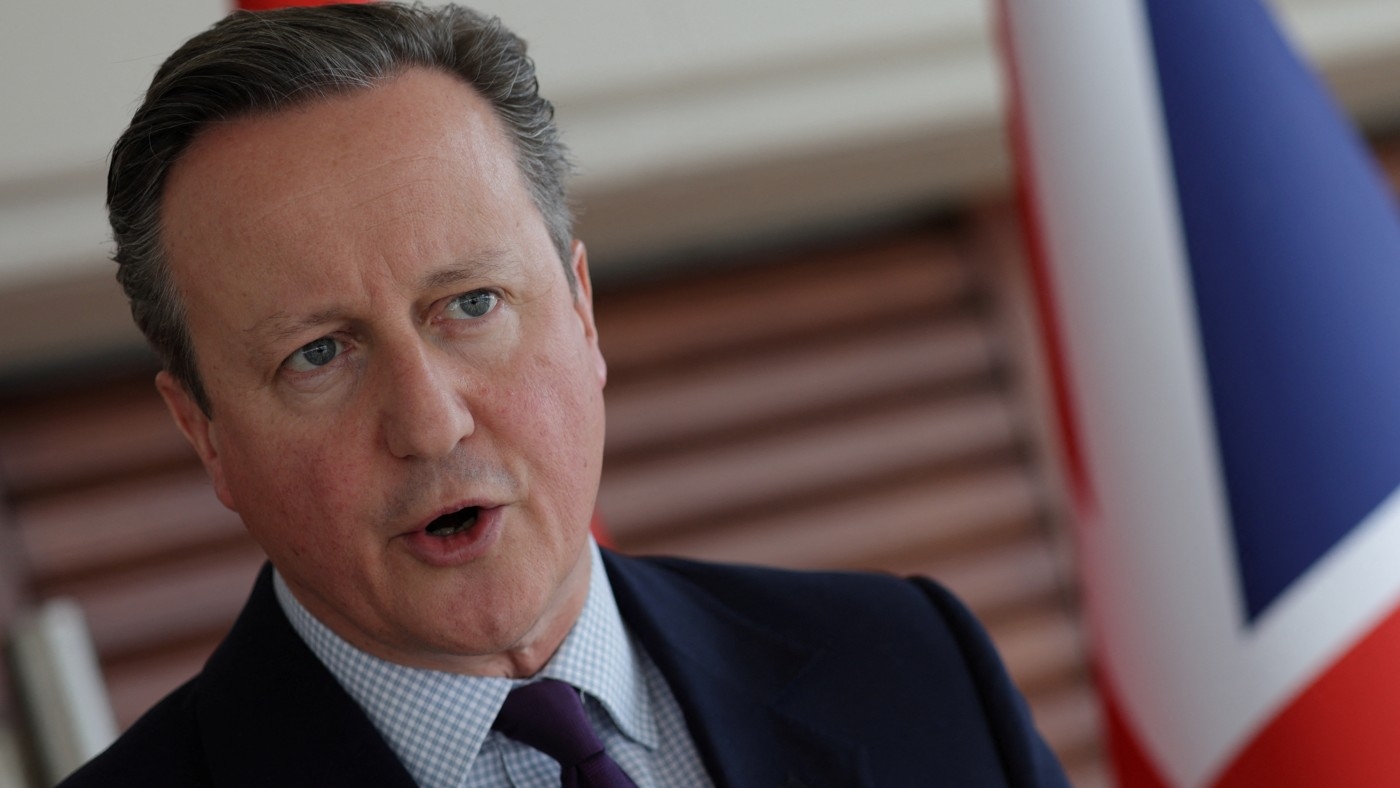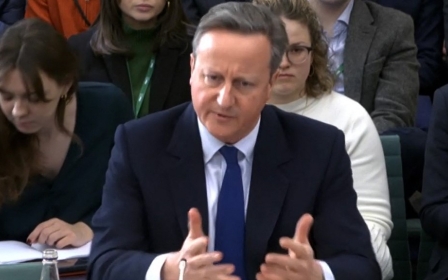Cameron says UK to consider recognising Palestinian state but not everyone is buying it

British Foreign Secretary David Cameron’s suggestion that the UK is considering recognising a state of Palestine has been dismissed as “PR” and a “masterclass in mental gymnastics” by legal experts and Palestinian advocates.
Speaking to the Conservative Middle East Council in the House of Commons on Monday night, Cameron said that the Palestinian people would have to be shown “irreversible progress” towards a two-state solution.
“We should be starting to set out what a Palestinian state would look like - what it would comprise, how it would work,” he said.
“As that happens, we - with allies - will look at the issue of recognising a Palestinian state, including at the United Nations… That could be one of the things that helps to make this process irreversible,” Cameron told the council.
According to the BBC, the foreign secretary suggested that formal, diplomatic recognition of a Palestinian state could be given not as part of a final peace deal, but instead during negotiations.
David Lammy, Labour’s shadow foreign secretary, welcomed “the government adopting Labour’s proposal to recognise the state of Palestine… Recognition should not wait for a final status agreement - it should be part of efforts to achieve one.”
Israeli Prime Minister Benjamin Netanyahu has made his opposition to a Palestinian state clear in public pronouncements, as well as in private meetings with Cameron and other allied officials.
Husam Zomlot, the Palestinian ambassador to the UK, heralded Cameron’s comments as “historic”.
“It is the first time a UK foreign secretary considers recognising the State of Palestine, bilaterally and in the UN, as a contribution to a peaceful solution rather than an outcome,” Zomlot wrote on social media, calling recognition a “British moral, political, legal and historical responsibility”.
“If implemented,” the ambassador wrote, “the Cameron Declaration would remove Israel’s veto power over Palestinian statehood, would boost efforts toward a two-state outcome, and would begin correcting the historic injustice inflicted on the Palestinian people by colonial Britain’s Balfour declaration.”
'Buzzword bingo'
But Zumlot’s enthusiasm was not shared by other Palestinian advocates and legal experts who spoke to Middle East Eye.
They questioned the timing and sincerity of Cameron’s remarks, given that Britain has not called for a permanent ceasefire in Gaza, has referred to the International Court of Justice’s ruling for Israel to “take all measures within its power to prevent acts of genocide” as “unhelpful”, and has suspended its funding to Unrwa, after 12 of the refugee agency’s staff were accused by Israel of committing atrocities during the Hamas-led 7 October attacks.
“It sounds like a nonsensical, PR position to take at this time,” Nimer Sultany, a Palestinian reader in public law at SOAS, told Middle East Eye. “Generally, increasing recognition by states strengthens Palestinian statehood. And this seems to be a reaction to Netanyahu’s rejection of Palestinian statehood.
'What kind of state is being recognised when a large part of the Palestinian people are being decimated?'
- Nimer Sultany, SOAS
“But doing that while also supporting genocide and the continuation of occupation (by preventing any legal forms of accountability for Israel’s conduct) and the defunding of the UN body that supports the education and welfare of refugees (who are two-thirds of the Palestinian people) puts this recognition to mockery.
“What kind of state is being recognised when a large part of the Palestinian people are being decimated?” Sultany asked.
“British recognition of statehood while also supporting the killing, starvation, and displacement of those who are supposed to live in this state is a meaningless act.”
Jonathan Purcell, public affairs and communications officer at the International Centre of Justice for Palestinians, called Cameron’s remarks a “masterclass in mental gymnastics”.
“Lord Cameron is playing buzzword bingo as he talks about ‘political horizons’ and the need for ‘irreversible progress’. There can be no progress and there is certainly no horizon in sight as long as he insists on talking about a hypothetical ‘sustainable ceasefire’ being better for peace than an immediate one,” Purcell said.
Absent Cameron and arms to Israel
Cameron has spent very little time in the UK since claiming that he had taken no formal decision to allow arms sales to Israel to continue amid the war on Gaza, in which over 26,000 Palestinians have been killed.
His appearance on Monday night marked a brief return before heading back to the Middle East on his fourth visit as foreign secretary.
“When will the foreign secretary finally come to this House to answer questions at this most dangerous of times,” David Lammy asked parliament on Monday.
On Tuesday, British foreign office minister Andrew Mitchell responded to a question in the House of Commons about stopping UK arms sales to Israel by saying that Cameron was “in the region” pursuing “vital policies”, including stopping Israeli threats to resettle Gaza and the carrying out of “unacceptable killings”. He went on to reaffirm Israel’s right “to defend itself”.
“Britain will recognise a Palestinian state at a time when it best serves the objective of peace. Bilateral recognition alone cannot end the occupation,” Mitchell said. "There is no question of rewarding Hamas," he added, in response to criticism from a fellow Conservative MP.
Ehud Yaari, an Israeli analyst, told MEE that Cameron’s remarks had come at the “wrong time” and in the “wrong context”. Yaari said they were “a prize to terrorism”, a view he said was probably shared by Netanyahu and his inner circle.
Sara Husseini, director of the British Palestinian Committee, told MEE: “The absolute priority here is to work for a ceasefire to stop the unfolding genocide.
"As Friday’s ICJ ruling firmly underlined, the British government has a clear legal obligation both to prevent genocidal acts and ensure it is not complicit through its military, diplomatic or other ties to the State of Israel. The foreign secretary must start there.”
Alon Pinkas, an Israeli diplomat who served as an adviser to four Israeli foreign ministers, said that Britain’s role in the Israel-Palestine conflict was “significant in the sense that it is a major US ally and has a seat at the UN Security Council”.
“Prime Minister Rishi Sunak and Cameron – as well as Keir Starmer – did the right thing in supporting Israel’s right of self-defence and extending support, while imploring Israel to be more mindful and careful in how it employs force,” Pinkas told MEE.
Middle East Eye propose une couverture et une analyse indépendantes et incomparables du Moyen-Orient, de l’Afrique du Nord et d’autres régions du monde. Pour en savoir plus sur la reprise de ce contenu et les frais qui s’appliquent, veuillez remplir ce formulaire [en anglais]. Pour en savoir plus sur MEE, cliquez ici [en anglais].




